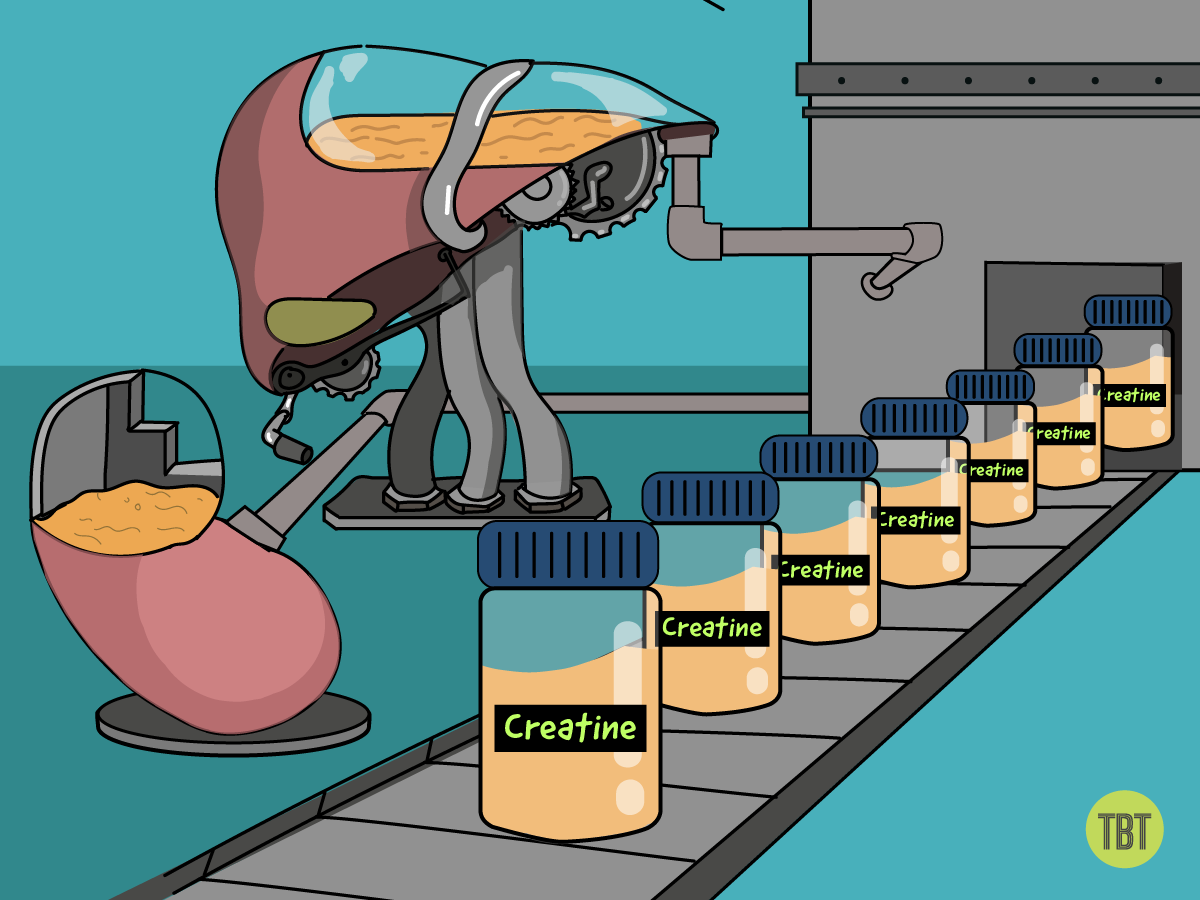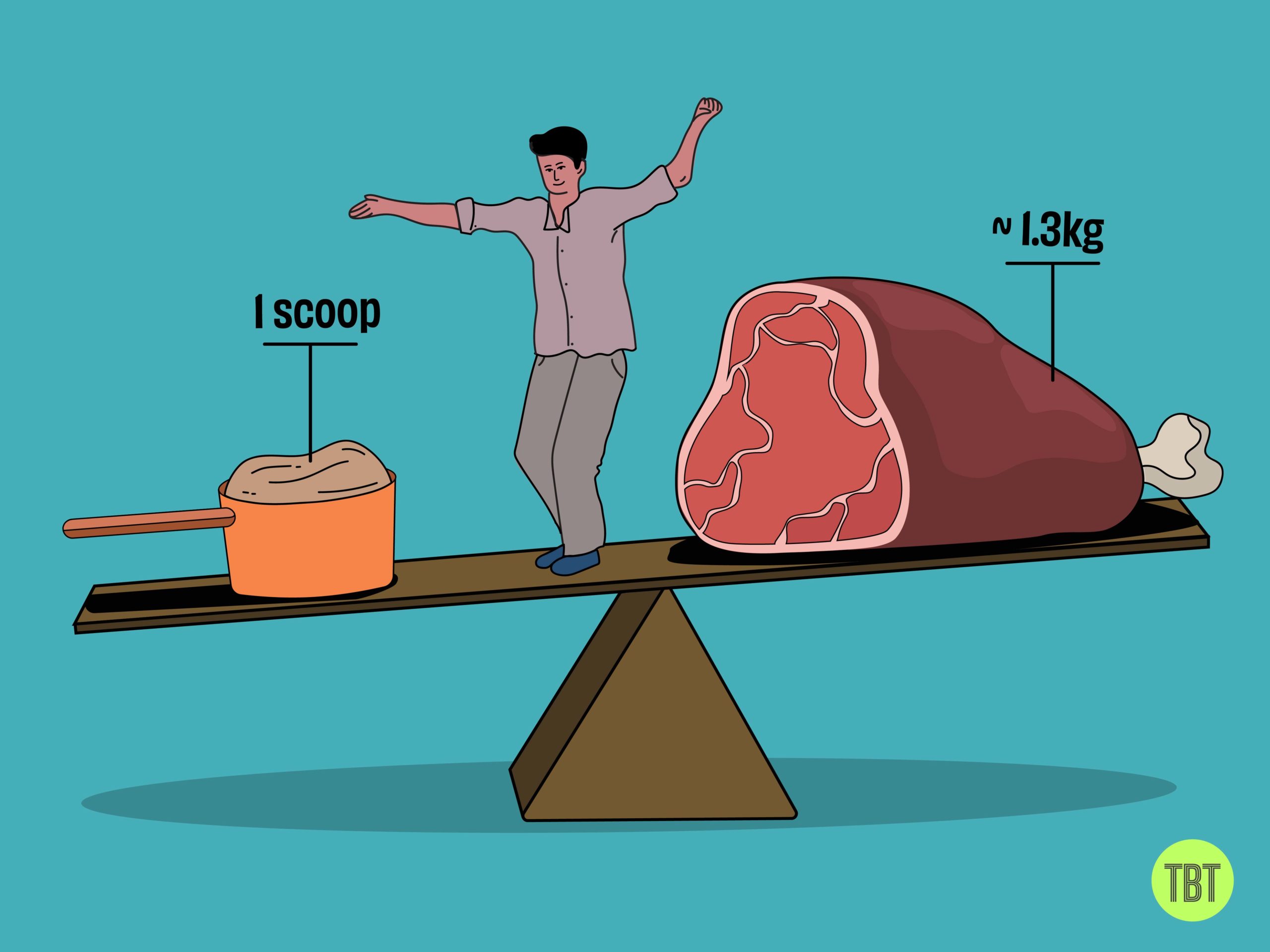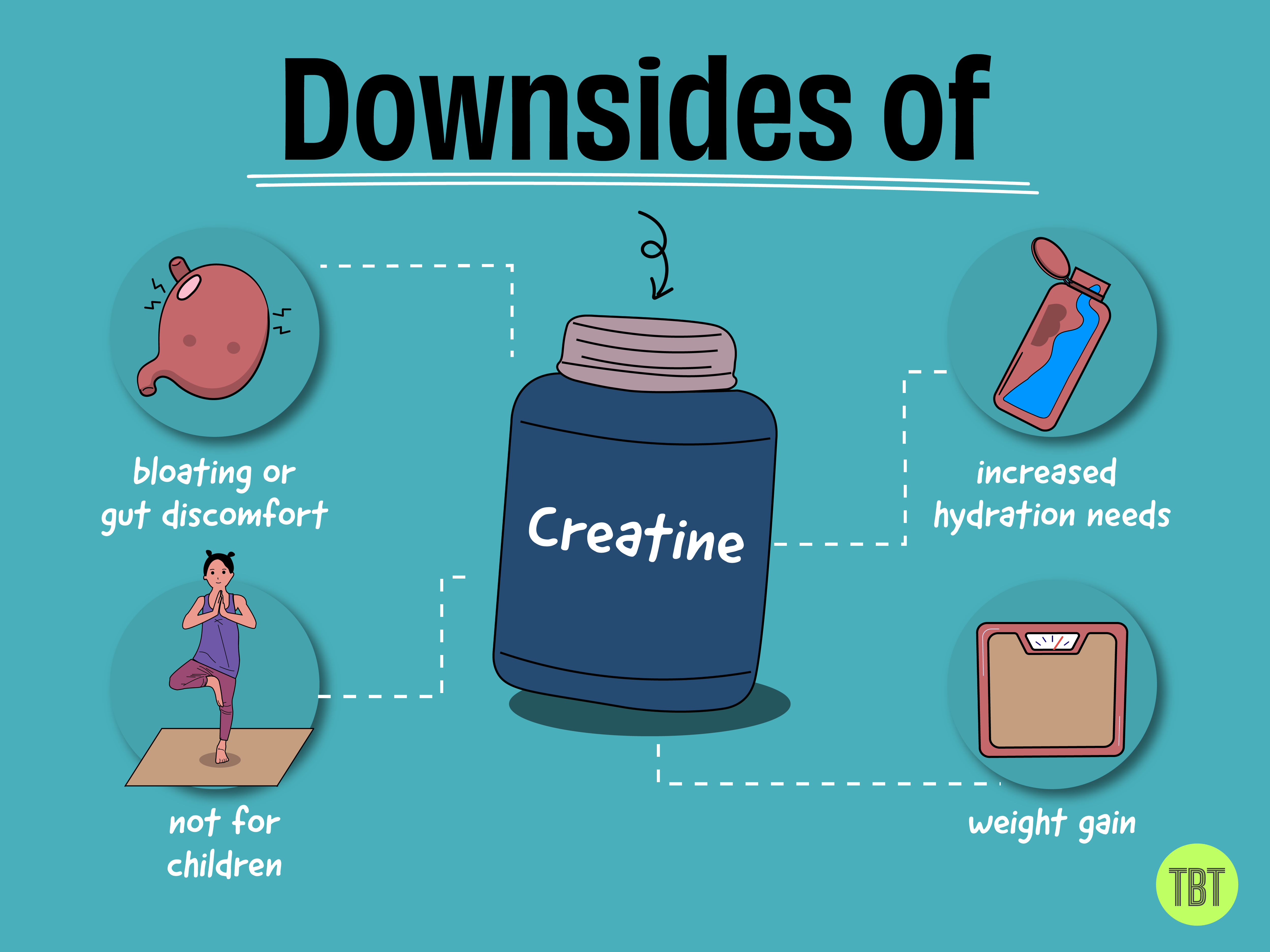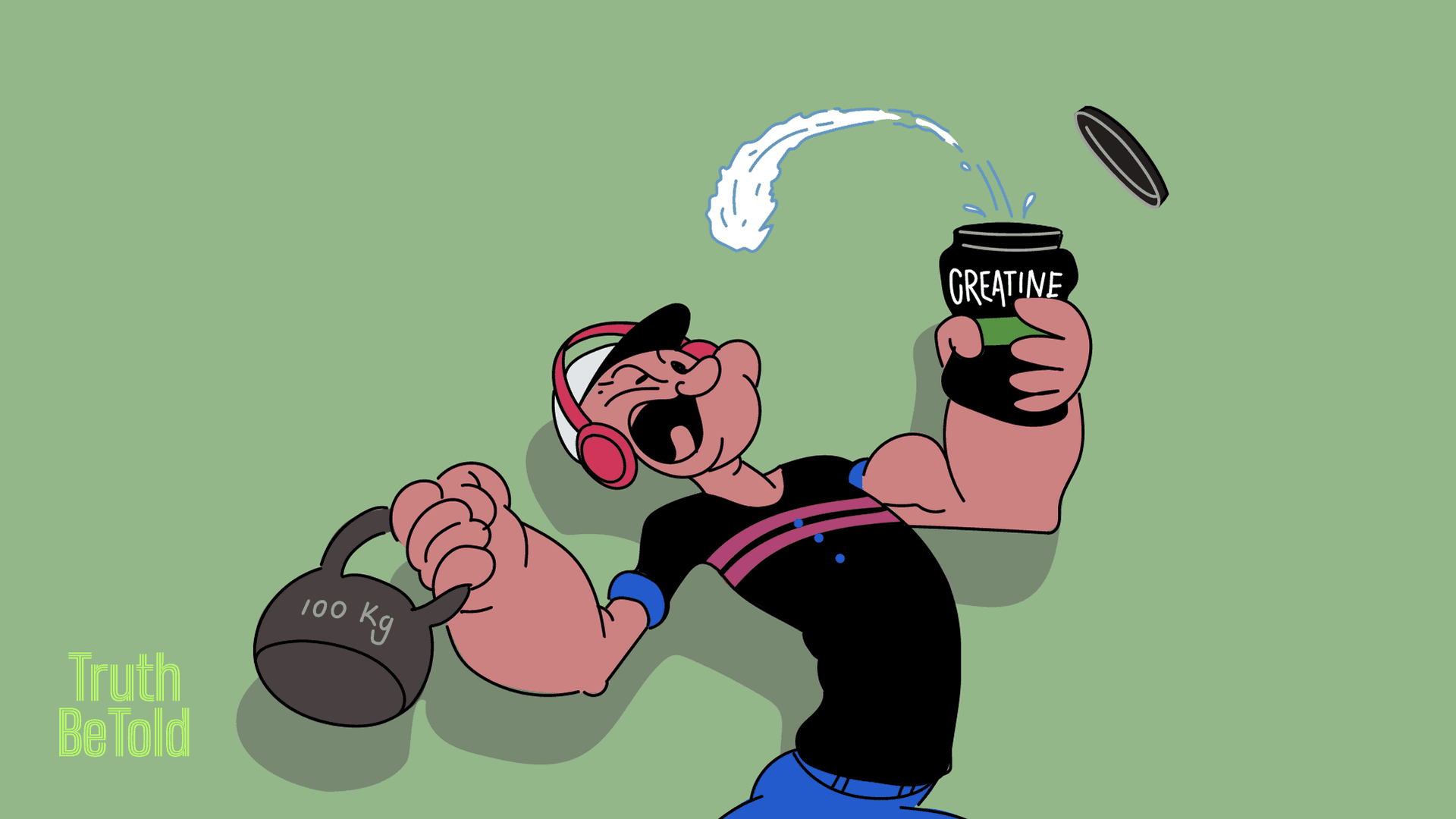What is creatine and what does it do?
The most trustworthy source of food and
fitness journalism in the country.
Editor’s note: Hi there. Ankush Datar is the writer of today’s piece, an in-depth analysis of another supplement: creatine. (We explored multivitamins two weeks ago.) He is writing his debut book on health and wealth, set to be released in 2024. You can follow him on Twitter and or subscribe to his musings on Substack.
I want to highlight a key concern: During the editing and fact-checking process, we discovered that several commonly cited studies in the media and popular online content, notably on creatine misconceptions, involve authors with disclosed ties to the creatine supplement industry. While such industry connections don’t inherently undermine research, they warrant extra scrutiny and a broader reflection on potential biases in our sources of knowledge on this supplement. We’ve compiled this article with rigour, but I just want you to be aware of this fact. In case we find any significant issues with our sourcing post-publication, we will update the piece. — Samarth Bansal (samarth@thewholetruthfoods.com)
Let’s talk about creatine. It often gets a bad rep, which isn’t unusual for fitness supplements. I get it — when we first hear these names, it’s like, ‘what am I putting into my body?’ And those chemical-sounding names don’t help either.
But creatine deserves a different consideration. It’s one of the most thoroughly researched supplements available, known for its safety and effectiveness. I speak from experience—I’ve been taking 3-5 grams of creatine every day for the last two years, and it’s been incredibly beneficial. So, here’s your crash course – Creatine 101.
Before diving into specifics, let’s set the stage by discussing supplement consumption in general. (Think of this as your mini-guide to understanding any supplement.)
1) Supplement is basically that extra bit you take to fill up on nutrients you’re not getting from your meals. The nutritional gap—the stuff you need but is not in your diet.
2) When thinking of a supplement, ask yourself a few things:
- What gaps am I missing in my diet? Both big (macros, like protein, carbs and fats) and small (micros, like vitamins and minerals). This is the central question. You need to self-examine your diet and lifestyle to get this answer.
- What supplements will help fill these gaps?
- Are these supplements cost-effective and safe for me?
Think about these questions. If you have a good understanding of what you are eating and what your body needs, you’ll spot the missing pieces—if any—in your diet.
And this brings us to creatine. It’s not just another supplement. It’s a bit of a superstar in the world of fitness and health: it’s naturally found in our bodies, playing a crucial role in how our muscles get and use energy, especially during intense workouts. And some research also suggests that it even has a part to play in brain health.
Let’s get to it.
1. What is creatine?
Creatine is a substance that occurs naturally in your body, primarily in your muscles as phosphocreatine. It’s also present in small amounts in certain foods and is synthesised by the body.
Your body produces it from amino acids, which are the building blocks of proteins. It functions like a battery pack for your muscles, boosting their growth and performance, especially during exercise. The liver and kidneys are the main production sites for creatine, although you can also obtain it from dietary sources like red meat, fish, and chicken.

Liver and kidneys are the main production site for creatine.
2. Why supplement with creatine?
Every day, your body produces about 1 to 2 grams of creatine, mostly stored in skeletal muscles (95%) and small amounts in the brain, heart, and testes. This natural production may suffice for general health, but for those engaging in strenuous activities or sports, this might not be enough. This is where supplementation can play a key role.
The demand for creatine is higher in individuals with more muscle mass or those who frequently undertake high-intensity workouts. Additionally, vegetarians and vegans, who don’t consume creatine-rich foods like meat, often have lower baseline levels. Therefore, supplementing helps replenish the daily creatine loss and maintain optimal muscle function, as noted by Professor Eric Rawson, an expert in health, nutrition, and exercise science.
3. What exactly does it do?
More creatine in muscles allows you to train harder and for longer. Here is how.
Imagine your muscles are like engines needing fuel to keep running, especially during exercise. The main fuel they use is called ATP (adenosine triphosphate), which is a bit like a small energy packet with three parts (phosphates). When you exercise, your muscles use this energy, and in doing so, one of the three parts gets used up – leaving ATP a bit like a depleted battery.
This is where creatine comes into play. Creatine in your muscles exists as phosphocreatine, which simply means it holds onto an extra part (phosphate) ready to be used. When ATP loses one of its phosphate parts during exercise, creatine donates its extra part to ATP, recharging it. This quick recharge helps your muscles work longer and harder during intense activities.
In simpler terms, it helps keep the energy supply steady in your muscles, offering a buffer against muscle fatigue by helping with the energy production process, so you can perform better in activities that require quick, explosive movements. This can improve your lifting capacity, endurance while running and ability to do high intensity workout.
Some research also suggests that creatine supplementation is helpful for brain health.
4. Can’t I just get it from my diet?
While it’s true that you can get creatine from your diet, particularly from meat, the amount you can realistically consume from food might not be enough, especially for certain individuals or athletes.
Meat, especially red meat, is a primary source. Therefore, meat eaters generally have higher levels of muscle creatine compared to vegetarians or vegans. However, to put it in perspective, you’d need to consume about 1.3 kilograms (almost 3 pounds) of beef to get the equivalent of one scoop of creatine supplement, which is around 4-5 grams.
Considering the practicality and dietary preferences, this amount of meat consumption daily isn’t feasible for most people, not to mention the dietary restrictions and availability issues.
This is why even those who include meat in their diets often turn to supplements. They provide a concentrated and convenient way to increase muscle creatine levels without the need to consume large quantities of meat.
Additionally, creatine supplements are vegan-friendly. They are typically synthesised in a lab, not derived from animal sources, making them suitable for everyone, including vegetarians and vegans.

1 scoop gives more creatine than 1.3kg of beef
🌱Your vegan friends might not know this, let them know
5. Does it lead to weight gain?
Yes, you can expect some weight gain when taking creatine, mainly because it causes your muscles to retain more water. This isn’t about adding fat; it’s about increasing the water content within your muscle cells.
Here’s why it’s a good thing: Muscles naturally contain water, but creatine increases this amount. This water retention makes your muscles look fuller and more pronounced – think of it as your muscles being more ‘pumped up’.
But it’s not just a cosmetic change. The extra water in your muscles can improve their function. It helps in better nutrient delivery to the muscles, potentially increases muscle resilience, making them less prone to fatigue, and might even encourage muscle growth by stimulating protein synthesis.
So, while you might notice an uptick on the scale, it’s reflecting this beneficial increase in muscle hydration, not an increase in body fat. This kind of weight gain is generally seen as a positive effect, especially for those focused on enhancing muscle appearance and performance.
6. Should creatine be taken by someone who doesn’t work out?
I would hesitate to recommend it as I have no experience of taking it when I was not working out. But studies indicate its benefits extend beyond physical performance. It may offer cognitive advantages, possibly improving memory and reducing symptoms associated with concussions or traumatic brain injuries.
However, the evidence for these benefits is considerably less robust than the data supporting creatine’s effects on muscular fitness.
7. Does it cause hair loss?
Concerns about creatine causing hair loss are largely based on a misunderstanding. There is no substantial evidence linking creatine supplementation directly to hair loss. The connection stems primarily from a single study in 2009, which has not been replicated since. In this study, it was investigated for its impact on athletic performance, not hair loss. The topic of hair loss became highlighted due to the sensitivity of the issue, but the study did not conclusively establish it as a cause of hair loss.
For more details, watch this video from the 8:30 mark which addresses the creatine and hair loss question in more detail.
8. Is it safe for kidneys?
The concern that creatine supplementation might harm the kidneys is a common misconception. In reality, about 20 years of research has consistently shown that taking creatine at recommended dosages does not lead to kidney damage or renal dysfunction. This concern is similar to the debunked myth that high protein intake harms the kidneys.
It’s true that supplementation can cause transient increases in blood or urinary levels of creatine and creatinine (a waste product). However, these temporary changes are not indicative of deteriorating kidney function. In fact, they are a normal response to increased creatine intake.
It’s important to note that creatine can elevate blood creatinine levels, a marker used to assess kidney function. This can be misleading during routine blood work, as higher creatinine levels might suggest kidney issues when, in reality, they are simply a result of supplementation. If you’re taking creatine and undergoing blood tests, informing your healthcare provider is crucial. They might opt for a urine analysis to accurately assess renal function without the interference of supplement-induced creatinine levels.
9. Is creatine only for men?
No, creatine is beneficial for both men and women. Women might find it particularly useful due to generally lower natural levels in their muscles and possibly in the brain.
Additionally, there’s no evidence of gender-specific side effects, making it a safe option for women as well as men. Pregnant women considering creatine should consult a healthcare provider, but overall, it is a universal supplement, not restricted by gender.
Research suggests that sharing this article will add happiness in your life 😛
10. What’s the best form of creatine to take?
When you’re looking for supplements, you’ll encounter various types, but creatine monohydrate is the standout choice. It’s the most researched and proven form, backed by substantial scientific evidence.
While there are over twenty different types of creatine, like creatine hydrochloride and creatine-l-leucine, none have shown more effectiveness than creatine monohydrate. A 2021 study confirmed that creatine monohydrate is just as effective as other forms. This makes it the preferred option for most people, especially since it’s also cost-effective.
To ensure you’re getting pure creatine monohydrate, check the supplement label – it should list creatine as the only ingredient. While I personally use and recommend creatine monohydrate, it’s worth noting that some individuals might prefer or respond better to other forms, like creatine hydrochloride, especially if they have specific digestive concerns.
11. How much creatine should I take?
The ideal daily dosage of creatine varies, but generally, 3-5 grams per day is recommended for most people. Research has shown that lower doses, like 1-2 grams, are often too low to provide significant benefits.
I personally stick to the 3-5 gram range daily, which aligns with the size of most scoops provided with supplements. It is versatile in terms of how you can take it – it’s tasteless and dissolves easily, so I usually mix it with curd or a protein shake.
A key point to remember when taking creatine is to stay well hydrated. It can increase water retention in muscles, so drinking ample water is crucial to prevent dehydration.
12. How long does it take to see the benefits?
Seeing the benefits of creatine doesn’t happen overnight; it’s a gradual process. The time it takes for you to notice changes depends on the creatine intake protocol you follow:
Non-Loading protocol: This involves taking up to 5 grams of creatine daily. With this approach, levels in your muscles increase steadily, and you can expect to see benefits after about 3-4 weeks. It’s a slower but steady process and is generally suitable for most people.
Loading protocol: In this method, you consume about 20 grams of creatine per day (divided into 4 scoops) for a short period, typically a week. This rapid increase can lead to quicker saturation of muscles with creatine, allowing you to see benefits within approximately 7 days. However, this high dose can sometimes cause digestive issues and is usually recommended for athletes with specific performance goals.
Both methods will ultimately increase creatine levels in your muscles over time, but the choice of protocol depends on your individual needs and how quickly you want to see results.
13. Are there any downsides or side effects of creatine?
While creatine is generally safe, there are a few potential side effects to be aware of:
Bloating and digestive issues: Some individuals may experience bloating or gut discomfort, especially those with pre-existing digestive conditions or specific genetic predispositions.
Weight gain: Due to increased water retention in muscles, short-term weight gain is common but typically not related to fat gain, as explained above.
Not for children: Creatine hasn’t been extensively studied in children, so it’s recommended to avoid its use in younger populations.
Increased hydration needs: It increases water retention within the body, necessitating a higher intake of water to prevent dehydration.
Being aware of these factors can help you use creatine safely and effectively.

14. When is the best time to take it?
The best time to take creatine is not crucial; consistent daily intake is key. While some research suggests a slight benefit to taking it post-workout, the difference is minimal. Focus on regular consumption rather than specific timing.
Sprinkle some creatine and this article in someone’s inbox😂
